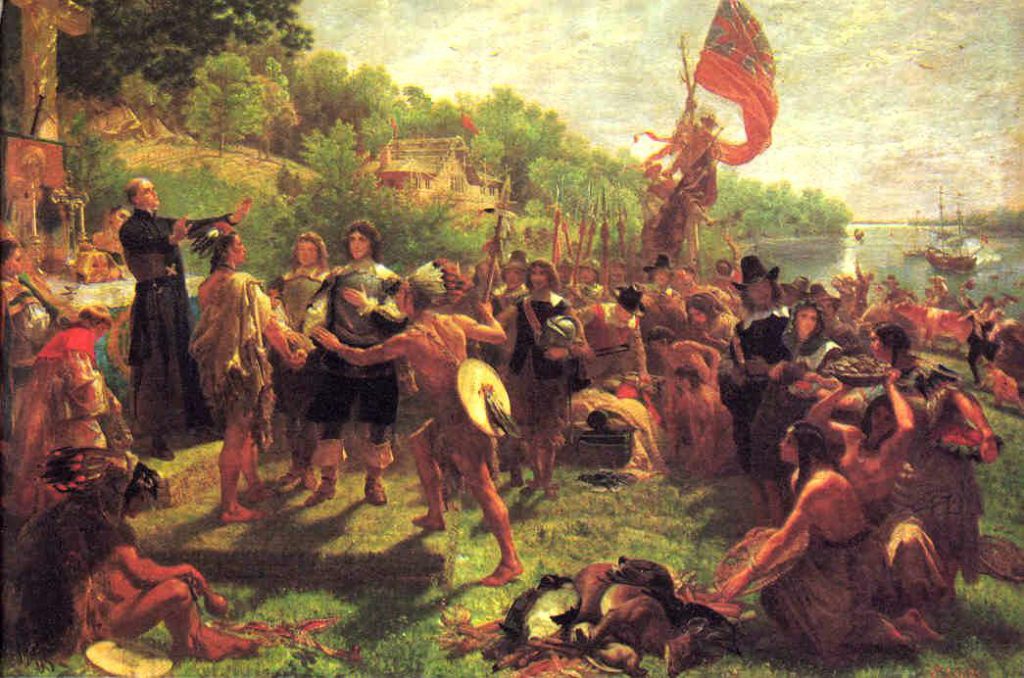
Published January 16, 2020
The “Catholic vote” is a myth. The notion that Catholics vote as an identifiable bloc of the national electorate hasn’t been true for decades. Still, there are enough Catholic voters – one out of every four or five, nationally – that even a marginal shift in one slice of the Catholic electorate can tip a national election. This being a presidential election year, and with the real possibility of a Catholic on the top of the Democratic ticket, many Americans will be paying close attention to see what the bishops in the United States say (or don’t say) about public policy in the coming months.
Will most of those folks hanging on the bishops’ words be looking for prudent advice about dispensing the responsibilities of Catholic citizenship? Or will they be proof-texting the bishops’ words, searching for rhetorical leverage against their political rivals? This bishop said that about abortion; that bishop said this about immigration; these bishops emphasized those issues; those bishops emphasized these; and so on.
Do most Catholics really care what the bishops say about political issues? Are we to believe that the pronouncements of the bishops on political matters are really going to prove decisive in how American Catholics vote this November? Count me as a skeptic.
To be clear, it’s not that I think bishops shouldn’t speak up on important matters of public life – I think they should and often must. But the pastoral obstacles they face in this regard are so intractable as to seem almost hopeless.
Last November, the bishops had a debate on the floor of the Conference about what language would be used in the new introduction to their document, Forming Consciences for Faithful Citizenship. The argument was about whether the issue of abortion could fairly be described as “preeminent” or if doing so obscured Pope Francis’ insistence that defending human dignity consistently requires the Church to defend the dignity of human life everywhere, not just in the case of the unborn. It was a serious argument about a serious issue. But for our purposes here, it’s worth asking: will the bishops’ choice of language in that document sway a single vote?
Most American Catholics can’t be bothered to get to Mass weekly, still less get to Confession. If recent polls are to be believed, a majority of American Catholics don’t even ascribe to fundamental tenets of the Catholic faith, like the doctrine of the Real Presence. And it’s not as though the past year and a half has seen a sudden blossoming of credibility among the bishops.
It gets worse.
Imagine you are a Catholic who came of age in the mid-2000s. You are a Millennial, part of the largest generation in American history. You are in your mid to late thirties, and your entire adult experience of American politics consist of the following: interminable wars overseas, endless fights over immigration and abortion, the financial crisis and Great Recession, eight years of Obama, the rise of the Tea Party, the Obergefell decision legalizing same-sex marriage, chronic legal skirmishes over religious freedom, the revolution in political media brought by cable news and then social media, the rise of identity politics, an opioid crisis, the election of Donald Trump, battles over the Supreme Court, and more endless fights over immigration and abortion.
If you’re a conservative, you’re probably either terrified of what Trump has done to your country and party and/or so pessimistic about what your country and party have become that you welcomed Trump. If you’re a progressive, you’re probably pretty outraged by, well, Trump and all his works. And if you see yourself as a moderate – polls suggest that you’re probably not, but hypothetically – you must think you’re surrounded by crazy people. The point is, this is pretty much the America you know. You’ve never known anything but this Great Unravelling.
None of this is exactly a recipe for confidence in the goodness of civic life or the vitality of the American republic. The virtue of citizenship is rooted in the ordered love of one’s own political community, but our political community, our beloved American republic has – how do I say this? – she seems to have let herself go a bit.
Polarization. Exhaustion. Cynicism. Acrimony. Contempt. These are the political watchwords of the day. Is it any wonder that people, especially young people, are increasingly skeptical of certain political orthodoxies of the past quarter-century? Twenty-five years after the fall of the Berlin Wall, the liveliest element of the American left is a handful of young socialists (and one old socialist). Meanwhile, on the right, and especially among Catholics, there has been a turn to fundamental questions about the viability of liberal democracy itself.
The point of all of this is not that we should despair of politics. The point is not that the witness of the bishops is impotent and therefore useless. The point is that if we measure the mission of the Church, or her leaders, by political success or influence, we are deluding ourselves. That was true sixty years ago when 80 percent of Catholics voted for John F. Kennedy and helped narrowly elect him as the first (and so far only) Catholic president. It was true in the 1980s and 1990s when the religious right was in its ascendancy. And it is true now when the Church’s political influence in this country is at its lowest ebb in generations.
Politics matters because of our nature. Citizenship matters because justice matters. But trying to glean hope from the world is so much foolishness – like the alchemists of old trying to confect gold from dross. The best thing you and I can do to transform our politics is to become saints. The best thing our shepherds can do is to lead us there by example.
© 2020 The Catholic Thing.
Image: Settlement of Maryland by Lord Baltimore by Emanuel Leutze, c. 1861 [Maryland Historical Society, Baltimore
Stephen P. White is executive director of The Catholic Project at The Catholic University of America and a fellow in Catholic Studies at the Ethics and Public Policy Center.









